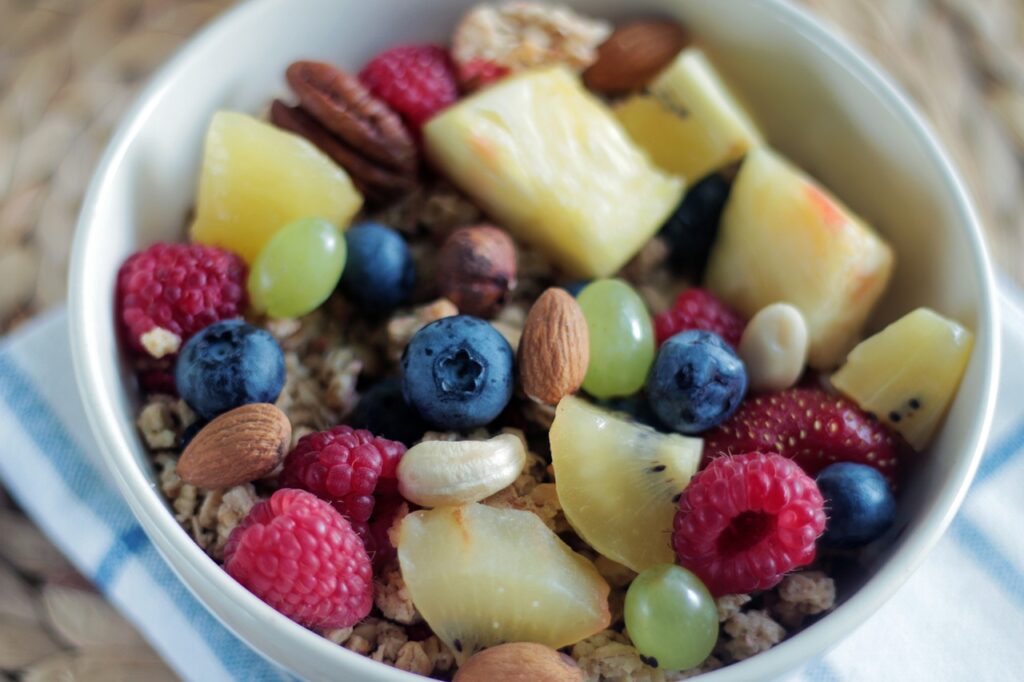When considering vital nutrition for athletes, you might wonder whether a low-fat diet or an ancestral diet, like Paleo, is more effective. Low-fat diets focus on minimizing fat intake, which can sometimes lead to insufficient energy levels. On the other hand, ancestral diets emphasize whole, unprocessed foods, providing a balanced mix of nutrients that could potentially enhance performance and recovery. This raises important questions about nutrient density, energy availability, and long-term sustainability. Before making a decision, it's pivotal to weigh the benefits of each approach and how they align with your athletic goals.
Understanding the Paleo Diet
The Paleo Diet, often referred to as the "caveman diet," emphasizes eating foods that our ancestors presumably consumed during the Paleolithic era. When you're following this diet, your food choices lean heavily towards meats, fish, fruits, vegetables, nuts, and seeds, while avoiding processed foods, grains, and dairy. The idea is to eat as naturally as possible, mimicking what early humans might have eaten.
You might encounter several diet myths when you start the Paleo Diet. One common myth is that it's difficult to get enough carbohydrates. However, the diet isn't necessarily low-carb; it just replaces grains with nutrient-dense vegetables and fruits. Another myth is that the diet is excessively high in protein. While it does prioritize meat, there's a balance of protein, fats, and carbohydrates from natural sources.
Benefits of Low-Fat Diets
You might wonder how a low-fat diet can benefit your athletic performance. For starters, adopting a low-fat diet helps in debunking common fat loss myths. Many believe that cutting fats entirely is essential for weight loss, but the truth is, a balanced approach with reduced unhealthy fats can be more effective.
In addition to aiding in weight management, a low-fat diet offers significant cardiovascular benefits. Reducing your intake of saturated and trans fats can lower your cholesterol levels, reducing the risk of heart disease. This is particularly important for athletes who need their heart to perform at its best to sustain high levels of physical activity.
- Improved Heart Health: Lowering unhealthy fats can enhance cardiovascular function, essential for endurance sports.
- Enhanced Weight Management: Debunking fat loss myths, a low-fat diet aids in maintaining a healthy weight without unnecessary restrictions.
- Increased Energy Levels: Opting for healthy carbs and proteins can keep your energy levels stable, pivotal for training and recovery.
Nutrient Density Comparison
When it comes to optimizing your diet for peak performance, choosing foods with high nutrient density is crucial. Nutrient density refers to the amount of essential vitamins, minerals, and other beneficial compounds relative to the calorie content of the food. Both low-fat and ancestral diets offer their unique nutrient hierarchies, but how do they stack up against each other?
Traditional food pyramids often emphasize grains and carbohydrates at the base, which can be less nutrient-dense compared to the lean proteins, vegetables, and healthy fats found in ancestral diets. Ancestral diets, which focus on whole, unprocessed foods, often rank higher in nutrient hierarchies. These diets include a variety of meats, fish, fruits, vegetables, nuts, and seeds, providing a broad spectrum of nutrients essential for athletic performance.
On the other hand, low-fat diets prioritize reducing fat intake, which can sometimes lead to the exclusion of nutrient-dense foods like avocados, nuts, and certain fish. While these diets may help in reducing calorie intake, they may fall short in delivering the full range of nutrients your body needs.
Ultimately, understanding the nutrient density of your food choices helps you make informed decisions, ensuring you get the most out of every calorie consumed.
Athletic Performance Insights
Building on the understanding of nutrient density, it's important to see how these principles translate into real-world athletic performance. Your diet impacts both your energy systems and mental toughness, which are vital for peak performance. Whether you opt for a low-fat or ancestral diet, each has unique effects on your body's ability to generate energy and maintain focus during strenuous activities.
Consider how different diets interact with your energy systems. A low-fat diet tends to emphasize carbohydrates, providing quick energy bursts, ideal for high-intensity workouts. In contrast, an ancestral diet, rich in fats and proteins, supports sustained energy release, beneficial for endurance sports.
Mental toughness is another critical aspect. Nutrient-dense ancestral diets often include foods like fatty fish and nuts, which are rich in omega-3 fatty acids. These nutrients can enhance cognitive function, helping you stay focused and resilient under pressure. Low-fat diets might not offer the same mental clarity due to lower fat intake, potentially affecting your ability to push through challenging moments.
- Energy systems: Tailor your diet to your sport's demands.
- Mental toughness: Choose foods that boost cognitive function.
- Performance consistency: Nutrient density supports long-term goals.
Understanding these insights helps you make informed dietary choices for peak athletic performance.
Impact on Recovery Times
Optimizing your recovery times hinges on the quality of your nutrition. Choosing between a low-fat diet and an ancestral diet can profoundly affect how quickly you bounce back after intense workouts. One pivotal factor is post workout inflammation. A low-fat diet often lacks the essential fatty acids that can help reduce inflammation, potentially prolonging your recovery period. In contrast, an ancestral diet, rich in omega-3 fatty acids from sources like fish and nuts, can help reduce inflammation, allowing your muscles to repair more quickly.
Hormonal regulation also plays a key role in recovery. A low-fat diet might not provide enough dietary fat to support the production of hormones like testosterone, which is essential for muscle repair and growth. An ancestral diet, on the other hand, includes healthy fats that support balanced hormonal levels, enhancing your body's natural recovery processes.
Ultimately, what you fuel your body with after workouts can either expedite or hinder your recovery. By understanding the impact of your diet on post workout inflammation and hormonal regulation, you can make informed choices that help you recover faster and perform better in your next training session.
Practical Meal Planning
Understanding the effects of nutrition on recovery times sets the stage for effective meal planning. You need to ponder meal portioning and snack scheduling to guarantee peak performance and recovery. Start by dividing your meals throughout the day to maintain energy levels and support muscle repair. Incorporating the best nutrition habits for recovery means prioritizing a balance of macronutrients, like proteins, carbs, and healthy fats, in every meal. Adequate protein intake is essential to rebuild muscle tissue, while carbohydrates help replenish glycogen stores depleted during exercise. Additionally, timing your snacks strategically around workouts can further optimize recovery and sustain energy throughout the day.
First, focus on meal portioning. Verify your plate includes a balance of macronutrients: lean proteins, complex carbohydrates, and healthy fats. This balance supports sustained energy and muscle recovery. For example, a portioned meal might include grilled chicken, quinoa, and a side of steamed vegetables.
Next, incorporate snack scheduling. Plan snacks around your training sessions to keep your energy levels steady. A pre-workout snack could be a banana with almond butter, while a post-workout option might be a protein shake with some fruit. Snacks should be nutrient-dense to make the most out of your intake.
Lastly, stay flexible but consistent. Adjust your meal plans based on your training intensity and goals.
- Experiment with different recipes: Keep it interesting to avoid monotony.
- Prep meals in advance: Saves time and verifies you stick to your plan.
- Stay hydrated: Don't forget the importance of water in your diet.
At a Glance
You've seen that while low-fat diets have their benefits, they might not be the best for athletic performance. Ancestral diets, like the Paleo diet, focus on whole, unprocessed foods that provide a balanced mix of nutrients essential for athletes. This approach can lead to better energy levels, improved recovery times, and overall enhanced performance. By choosing nutrient-dense foods, you're setting yourself up for sustained success in your athletic endeavors.




